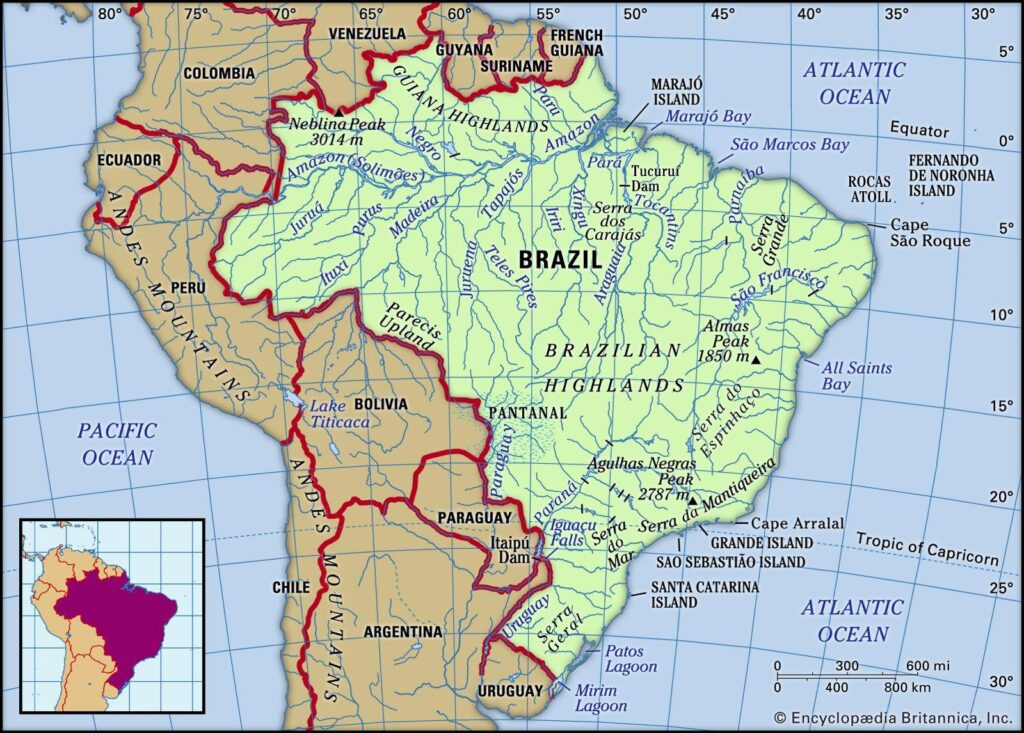Introduction
In a bold yet controversial move, the Brazilian government has proposed a new devastation bill that critics argue poses a significant threat to the Amazon rainforest, one of the world’s most vital ecosystems. With the bill aiming to loosen restrictions on land use and resource extraction, environmentalists warn that it could accelerate deforestation rates that have already reached alarming levels. As global concerns about climate change intensify, the implications of this legislation extend far beyond Brazil’s borders, raising questions about the balance between economic development and environmental preservation. This article delves into the key provisions of the devastation bill, the potential impacts on the Amazon, and the broader ramifications for biodiversity and climate stability.
Brazil’s Devastation Bill: Implications for Amazon Conservation and Climate Stability
The recent passage of Brazil’s devastation bill has raised alarm among environmentalists and scientists, igniting fears over the fragile state of the Amazon rainforest. This legislation weakens existing protections, paving the way for increased agricultural expansion and resource extraction. The ramifications are profound, affecting not only the rich biodiversity that thrives in this vital ecosystem but also the indigenous communities that rely on the forest for their livelihoods. With the bill’s endorsement, deforestation rates are expected to surge, leading to irreversible damage that could undermine decades of conservation efforts. The repercussions extend beyond Brazil, as the Amazon plays a critical role in carbon sequestration, influencing global climate patterns.
As the world grapples with climate change, the implications of this legislation are dire. Key points of concern include:
- Potential for escalated deforestation, with estimates suggesting an increase of up to 30% over the next decade.
- Threats to indigenous land rights, jeopardizing their traditional knowledge and stewardship of the forest.
- Increased greenhouse gas emissions, as deforestation accounts for approximately 10% of global emissions.
In light of these challenges, international stakeholders are increasingly calling for a reevaluation of Brazil’s environmental policies. The potential loss of the Amazon not only threatens local ecosystems but also poses a considerable obstacle to achieving climate stability on a global scale.
Analyzing the Economic Drivers Behind Deforestation in Brazil’s Legislative Agenda
The Brazilian legislative agenda has increasingly favored policies that prioritize short-term economic gains over environmental protection, placing the Amazon rainforest in jeopardy. Key drivers behind this trend include the pressure from agribusiness, which is a significant contributor to the country’s GDP. As the demand for agricultural land expands, lawmakers face considerable lobbying from powerful agricultural sectors aiming to exploit vast tracts of rainforest for soy cultivation and cattle ranching. This alignment often translates into legislation that weakens environmental regulations, such as the Forest Code, which governs land use in forested areas. The drive to increase exports further amplifies these pressures, creating a contentious environment where conservation efforts are continually undermined.
In addition to agribusiness, other factors, including urbanization, and the surge in mining operations, significantly contribute to deforestation in Brazil. As cities expand, the need for infrastructure development intensifies, often at the expense of natural habitats. Moreover, the mining sector seeks access to the rich mineral resources located within the Amazon, which has led to calls for deregulation and the establishment of targeted zones for extraction. The interplay of economic ambitions and political will reveals a concerning trend, suggesting that the prioritization of growth may result in irreversible damage to one of the planet’s most vital ecosystems. The divergence of legislative priorities from environmental stewardship endangers not only the Amazon but also the intricate biodiversity that relies on it.
Strategies to Counteract the Threats Posed by Brazil’s Devastation Bill on Biodiversity
The urgency to address the threats posed by Brazil’s recent devastation bill on biodiversity cannot be overstated. Conservationists and environmentalists propose a multifaceted approach to mitigate these risks, prioritizing legislative advocacy at both national and international levels. Advocating for stricter regulations is essential; this can be achieved by mobilizing public opinion and raising awareness about the ecological consequences of deforestation. Additionally, fostering partnerships between local communities and NGOs can enhance grassroots efforts in conservation, ensuring that indigenous voices are amplified in decision-making processes.
Furthermore, integrating sustainable development practices can provide a viable alternative to the destructive consequences of the bill. Strategies to promote agroforestry, sustainable tourism, and eco-friendly agricultural methods can significantly alleviate the pressure on Brazil’s forests. Providing financial incentives for landowners who choose to preserve rather than exploit their land can shift the economic focus away from deforestation. Involving the private sector in conservation efforts through corporate social responsibility initiatives can also drive investment in sustainability. Below is a brief overview of potential strategies:
| Strategy | Description |
|---|---|
| Legislative Advocacy | Engage policymakers to strengthen environmental laws. |
| Community Engagement | Empower local populations to participate in conservation efforts. |
| Sustainable Practices | Promote agroforestry and eco-friendly agricultural methods. |
| Private Sector Involvement | Encourage businesses to invest in sustainable practices. |
Wrapping Up
In conclusion, Brazil’s newly proposed devastation bill represents a significant shift in environmental policy, raising serious concerns about the future of the Amazon rainforest. As lawmakers weigh the economic benefits of land development against the ecological imperative to protect one of the planet’s most vital ecosystems, the potential consequences of such legislation cannot be overstated. The risk of accelerated deforestation and its far-reaching impacts on biodiversity, climate change, and indigenous communities is at stake. As the debate unfolds, the world will be watching closely, hoping that the voices advocating for sustainable practices and environmental stewardship prevail over the push for unchecked development. The fate of the Amazon hangs in the balance, and actions taken today will echo for generations to come.
